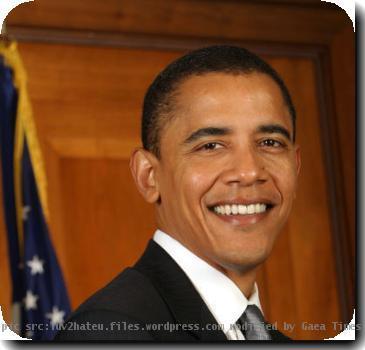Controversy over burial, crash probe frays unity spawned by death of Polish leaders
By Vanessa Gera, APWednesday, April 14, 2010
Poland’s post-crash sense of unity starts to fray
WARSAW, Poland — The sense of unity spawned by the plane crash that killed Poland’s president and dozens of other leaders has begun to fray, with controversy flaring over the choice of a burial site and suspicion spreading about the cause of the accident.
Aviation experts say the probe of the crash is moving relatively quickly but some Poles are complaining about a lack of public information, including the transcript of conversation in the cockpit before the accident.
Pilots ignored pleas by traffic controllers at the Smolensk Airport to land elsewhere. Some here are speculating that they ignored the risks in order to keep President Lech Kaczynski on schedule for a memorial for Polish officers executed by Soviet secret police in the Katyn forest in 1940.
Investigators hope to release information on the flight recordings on Thursday but conspiracy theories are already swirling.
“We will never find out the truth,” said Jan Maliszewski, a 42-year-old construction worker.
Discord flared for a second day as to whether Kaczynski and his wife should be interred at the 1,000-year-old Wawel Cathedral — the main burial site of Polish monarchs since the 14th century and of more recent heroes, including the 20th-century Polish statesman and military leader Jozef Pilsudski.
Sunday’s state funeral will begin at begin at 2 p.m. (1200 GMT) with a Mass at St. Mary’s Basilica. The bodies of the first couple will then be carried in a funeral procession across the Old Town and up the Wawel hill, site of a castle and a fortification wall surrounding the cathedral.
Some Poles criticized the decision to bury Kaczynski, whose combative style earned him many opponents, in a place reserved for the most esteemed of national figures.
“President Lech Kaczynski was a kind, humble man but there is no reason to bury him on Wawel with Polish kings, next to Jozef Pilsudski,” said Andrzej Wajda, the director who made a film on the Katyn massacres that won him an Oscar nomination in 2008.
About 300 people staged a protest in Warsaw on Wednesday evening decrying the decision, which was made by the Kaczynski family and the Catholic church without public debate or a vote in parliament. A large banner read “Warsaw for President, Wawel for Kings.” It followed a similar rally in Krakow the evening before.
“Wawel is a place for kings, poets and the most outstanding people of Poland,” said Katarzyna Markiewicz, 25. “Mr. Kaczynski was our president and this is a national tragedy but he shouldn’t be at Wawel. This is a political game.”
In a front-page editorial, leading Polish daily Gazeta Wyborcza said the “decision to bury him in Wawel is hasty and emotional.”
It raised the unsettling prospect of protests during the state funeral, which will be attended by numerous world leaders, including President Barack Obama and his wife, Michelle, as well as Russian President Dmitry Medvedev, German Chancellor Angela Merkel, Canadian Prime Minister Stephen Harper and French President Nicolas Sarkozy.
“I trust that the entire society will accept this decision with understanding,” Krakow Archbishop Stanislaw Dziwisz said. “During such occasions, we should unite, and never divide. Divisions serve no one.”
Meanwhile, the bodies of 30 victims returned home, their flag-draped coffins laid out side-by-side on the tarmac at Warsaw’s airport before being ferried into town. Among them were the remains of the central bank head Slawomir Skryzpek and Polish Olympic Committee head Piotr Nurowski.
“You have returned home, you have returned to your loved ones,” Prime Minster Donald Tusk said facing the caskets and weeping relatives. “Today your loved ones are crying. Today the entire country is crying.”
In speculating about the cause of the crash, Polish media have focused on a 2008 incident in which people aboard the presidential plane said Kaczynski pressured pilots — unsuccessfully — to make a risky landing in Georgia during the war there with Russia in 2008.
“The president came to the cockpit and as a commander in chief ordered me to fly to Tbilisi,” the pilot wrote in his report of the incident, which was printed by the Gazeta Wyborcza daily soon after the August 2008 trip. Kaczynski is quoted as telling him: “if someone decides to be an officer he shouldn’t be fearful.”
That pilot, Grzegorz Pietruczuk, was quoted Wednesday as acknowledging the demands of keeping dignitaries on schedule.
“We’re under pressure to stick to a schedule. We know the rank of the passengers we have on board,” Pietruczuk said in the Dziennik Gazeta Prawna daily. “But our pilots are trained not to give in to pressure.”
Investigators have suggested that human error may have been to blame for Saturday’s crash. The Tu-154 went down while trying to land in dense fog at Smolensk in western Russia. All aboard were killed, including the president, first lady, and dozens of Polish political, military and religious leaders.
The pilot had been warned of bad weather in Smolensk and advised by air traffic controllers to land elsewhere — which would have delayed the Katyn observances.
“This investigation is moving rather quickly and I’ve seen more information released than I would normally expect,” said Bill Voss, president of the U.S.-based Flight Safety Foundation.
“Everyone is impatient because the tragedy is of such a huge magnitude.”
Polish officials said June 20 now appears all but certain to be the date of an early election to replace Kaczynski.
Associated Press Writers Monika Scislowska and Marta Kucharska contributed to this report.
Tags: Accidents, Barack Obama, Eastern Europe, Europe, Funerals And Memorial Services, Krakow, Poland, Russia, State Funerals, Transportation, Warsaw





